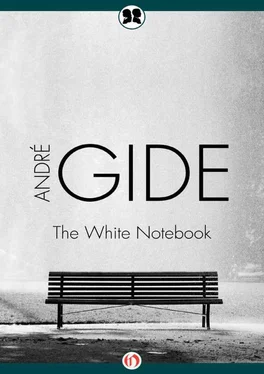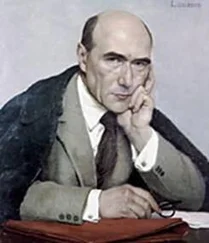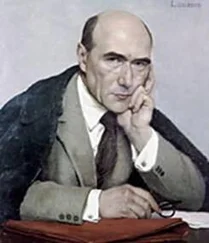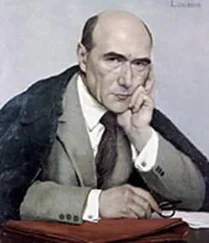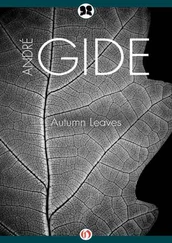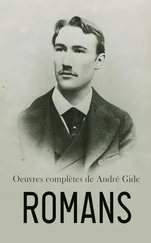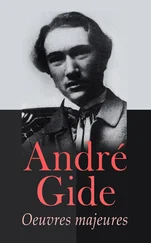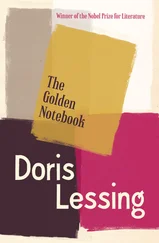“… Then words, disconnected words, tremulous sentences, something resembling music.
“It is midnight and I am sleepy but unable to sleep, for I am consumed by love. Everything around me sleeps; I am alone and I weep. The air is warm and it is raining outside — a spring rain that make all nature fruitful. And the air played on the cello and remembered during the night assuages my delirium, lulls, soothes, consoles. Thoughts of grief, of madness, of love, of ecstasy are lost in restful sleep.…
“… Submit, my soul; weep and pray for a long while as sweet night brings intoxication. Weep and submit, my soul. Pray.”
(1887)
“… Or flesh in disguise. Rotten flesh! It appears everywhere in disguise.
“Consider the source of poetry … writhings of desire and nerves vibrating to the fascination of colors because of a small quantity of fluid dispersed throughout the body! Oh, what prose, what sordid prose at the bottom of it all!
“But such is responsible for the flower, the supreme poetry of the plant. Here diapered petals unfold themselves beneath erect stamens, like a sumptuous bed of unconscious delights. O poet’s unconsciousness! blindness! vain belief in an inspiring Muse! Puberty excites the poet, making him wander about on starry nights under the illusion that he is extolling the ideal … until verses elude him. Then the stream of poetry that overwhelms him is converted into orgies in the arms of a courtesan.
“The derivative is indeed sublime! Indeed, it makes man think of himself as God! Beautiful, moonlight nights that evoke pure poetry (Musset)… but dogs also bay at the moonbeams!
“What is pure and what sullies cannot be known, for the connection between the two essences is so subtle and their causes so intermingled that a vibration in one is manifested in the other. An abundance of blood makes a generous heart. If Swift had known love, he might have written psalms.… And you tell me, friend, that I should not worry about my body but should let it pasture in the fields that it covets. But the flesh corrupts the soul, once it has been corrupted! New wine cannot be put into rotting vessels! The flesh lays claim to the soul unless the soul wins control at the outset. The soul must be the master and not the slave. 26
“Then I am romantic because my blood pulses within me.… Even so, the illusion of the ideal is good and I wish to preserve it.”
( Poubazlanec, Sept. , 1887)
“Your advice is striking, O Ar***. And so is your theory! ‘Free the soul by giving the body what it asks!’ you say. And you would hold me in even higher esteem if I did.… But friend, the body would have to ask for what is possible; if I gave it what it asks, you would be the first to raise a hue and cry; besides, could I satisfy it? 27
“Your complacency is also striking! ‘The struggle naught availeth,’ you said to yourself. ‘The soul must not exhaust itself in unworthy conflicts.’ Yielding beforehand, you spared yourself the effort. But you must know that gangrene of the flesh infects the soul. No desire of mine fails to reverberate throughout my soul.
“And you set yourself as an example. Certainly, I admire you. Your outlook is broad and you take life as life will probably take me eventually. But what I have not told you, what you must never learn lest your serenity be disturbed, is the complete shattering of my dreams when you, obviously disillusioned, told me all this. Oh, I had placed you on a higher plane! And tears on my wounded pride whose futility I suspected for the first time! Disgust bordering on nausea on looking at life, the life that must be lived! I prefer my dream. My dream! 28
“You smiled as you said these things and I smiled as I listened, but I no longer understood your words. One thought alone made tears flood my heart: ‘He returned to the girl and was not recognized by her.’
“Not recognized! Lord, is it possible? My heart ached throughout the night. Why this sadness? Such things must be. Why should she have recognized him? She had seen so many afterwards, and features inexorably fade from memory.
“But he had given you everything! Did you know? Had he dared tell you? How depressing is all this, how depressing! Fie! If this is the life that must be lived.…
“I prefer my dream, Lord! I prefer my dream.”
( July 1887)
“I detest their advances, their whispered or subtly intoned words, their ghoulish or siren voices — I detest everything about them.
“And when I walk down the street, I leave the sidewalks and quickly take to the pavement. From a distance I see them turning, pacing back and forth … and their gestures, their supposed designs forever intrigue me. I would like to find out.…
“It was two years ago and it was for the first time. As a matter of fact it was the only time, for now I am careful and walk at a distance from them. One was singing a sad refrain; a little mockingly but tenderly, and with such a thin, weak voice.… As I passed near her she turned around and made a sign, without stopping her singing.
“It was the first time, one of the first nights of spring. The air was warm and the melody nerve-racking.… Tears filled my eyes. I could not help turning and running away. She laughed shrilly and another one who was loitering nearby called out: ‘There is nothing for you to be afraid of, pretty boy.’ The emotion was so violent that I thought I would faint; blood rushed to my face; I blushed from shame, from shame for them; I felt that I had been sullied by the mere fact that I had heard their words. My temple throbbed, my eyes were dimmed by a flood of tears. I ran away.
“But I shall remember the singing shadow beneath the blooming chestnuts, the flickering gaslight and the warm, distracting spring night; then the burst of laughter, as sharp as a broken object; and the tears that I shed. Yes, I shall always remember. The episode was unusually poetic.
“I am writing these things this evening because the season is the same, because the air is just as warm and because everything helps me to remember. I had played the scherzo by Chopin that I still remember and, afterwards I ran through the countryside, intoxicated by sonorities, harmonies. The sky had no moon but was bright with stars; although there were no clouds, rain began to fall, warm rain almost like dew.
“And the air was filled with the perfume of moist summer dust.” 29
Friday
I kept thinking about it until it became an obsession. Last night I dreamed that I was following a path lined by shadows and that on both sides of me writhed naked couples. I could not see their bodies but sensed their embraces. I was overcome by dizziness and, to avoid stumbling, was walking in the middle of the road, alone and erect, with my eyes raised to keep from seeing anything and my hands raised above my head. In the sky shone a few stars. I heard their love-making in the shadows.
I read in the Book of Revelation words containing mysterious promises:
Thou hast a few names which have not defiled their garments; and they shall walk with me in white; for they are worthy.
He that overcometh, the same shall be clothed in white raiment.
To him that overcometh will I give of the hidden manna — a white stone on which no man knoweth saving he that receiveth it.
Then I meditated and made virtuous resolutions. 30
My dreams were splendid. I wrote:
( March 1886)
“I would like at twenty-one, the age when passion bursts forth, to subdue it through frenzied, intoxicating toil. I would like, while others pursue vain pleasures, merry-making and debauchery, to taste the sequestered delights of the monastic life. Alone, absolutely alone, or perhaps surrounded by a few white-robed Carthusians, by a few ascetics; sequestered in some rustic Carthusian monastery in the open countryside, in a sublime and stern setting. I would like to have a bare cell and to lie upon the floor with a horsehair pillow under my head; nearby, a huge but plain praying stool; in the alcove, the Bible always open; overhead, a lamp always lighted. I would like during periods of sleeplessness to experience violent raptures in the terrifying darkness that envelops me as I become totally engrossed in the study of a verse. No noise except perhaps the occasional heavy rumblings of mountains, the dismal voices of glaciers or the midnight psalms chanted on a single note by the Carthusians who keep watch.
Читать дальше
